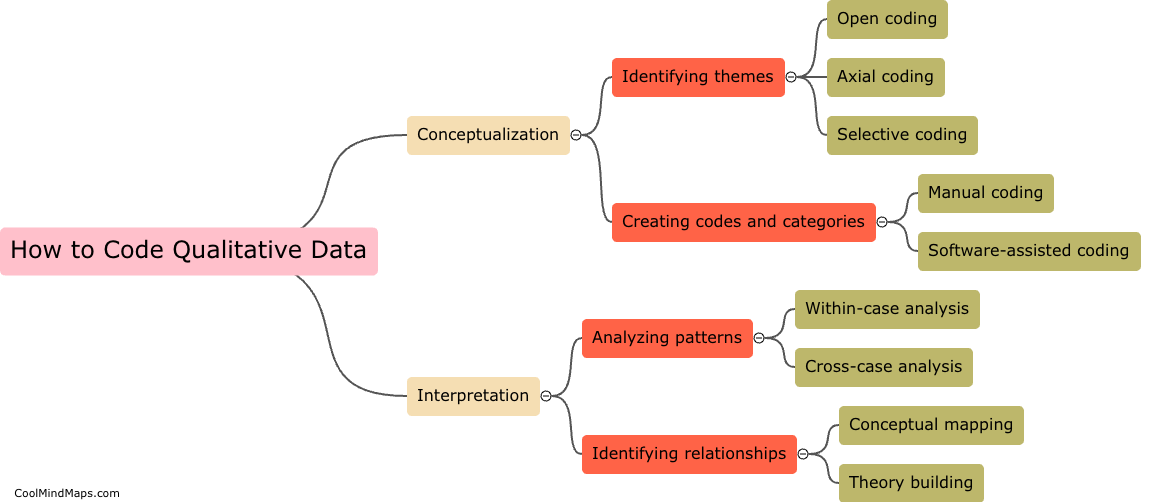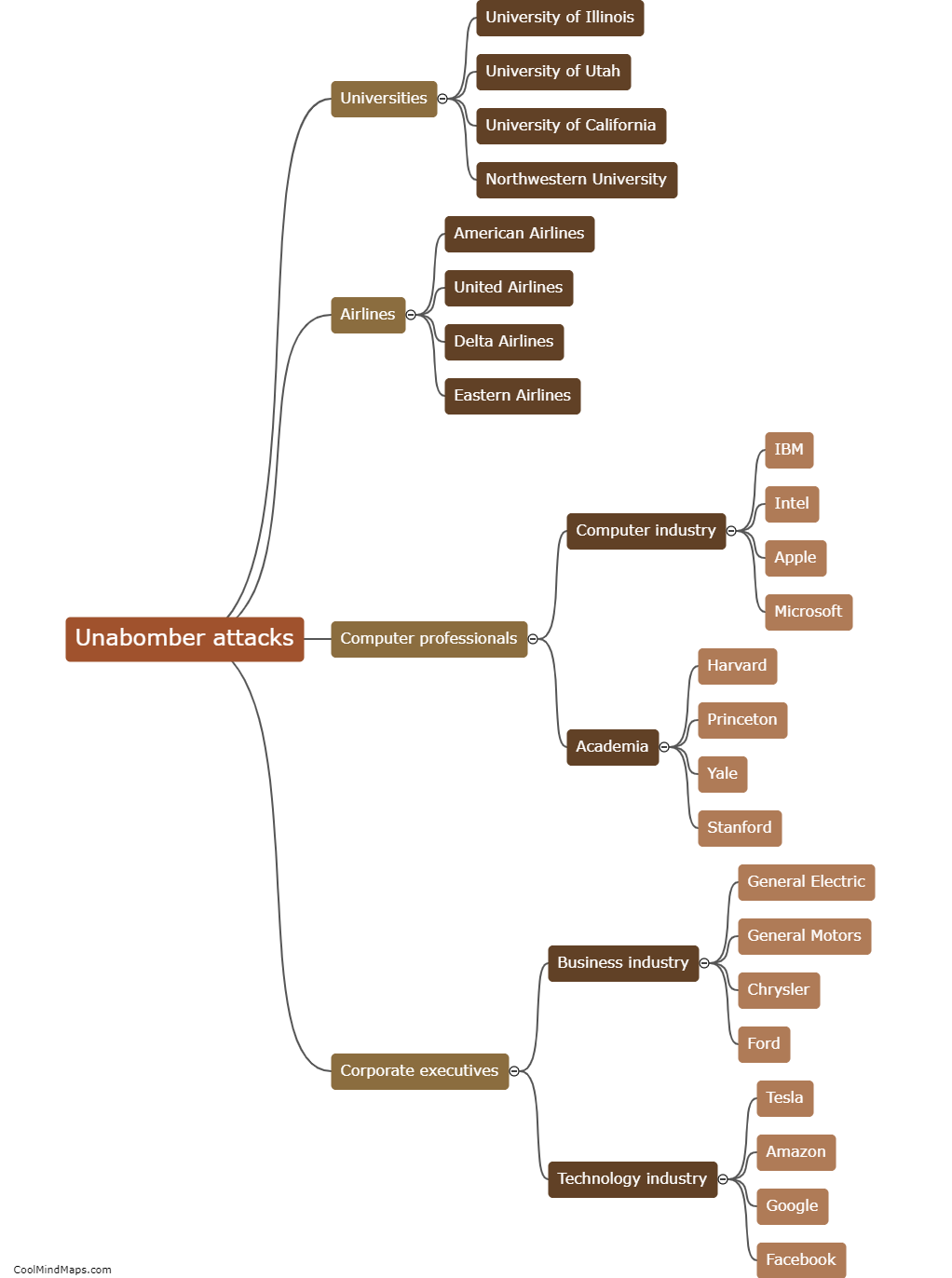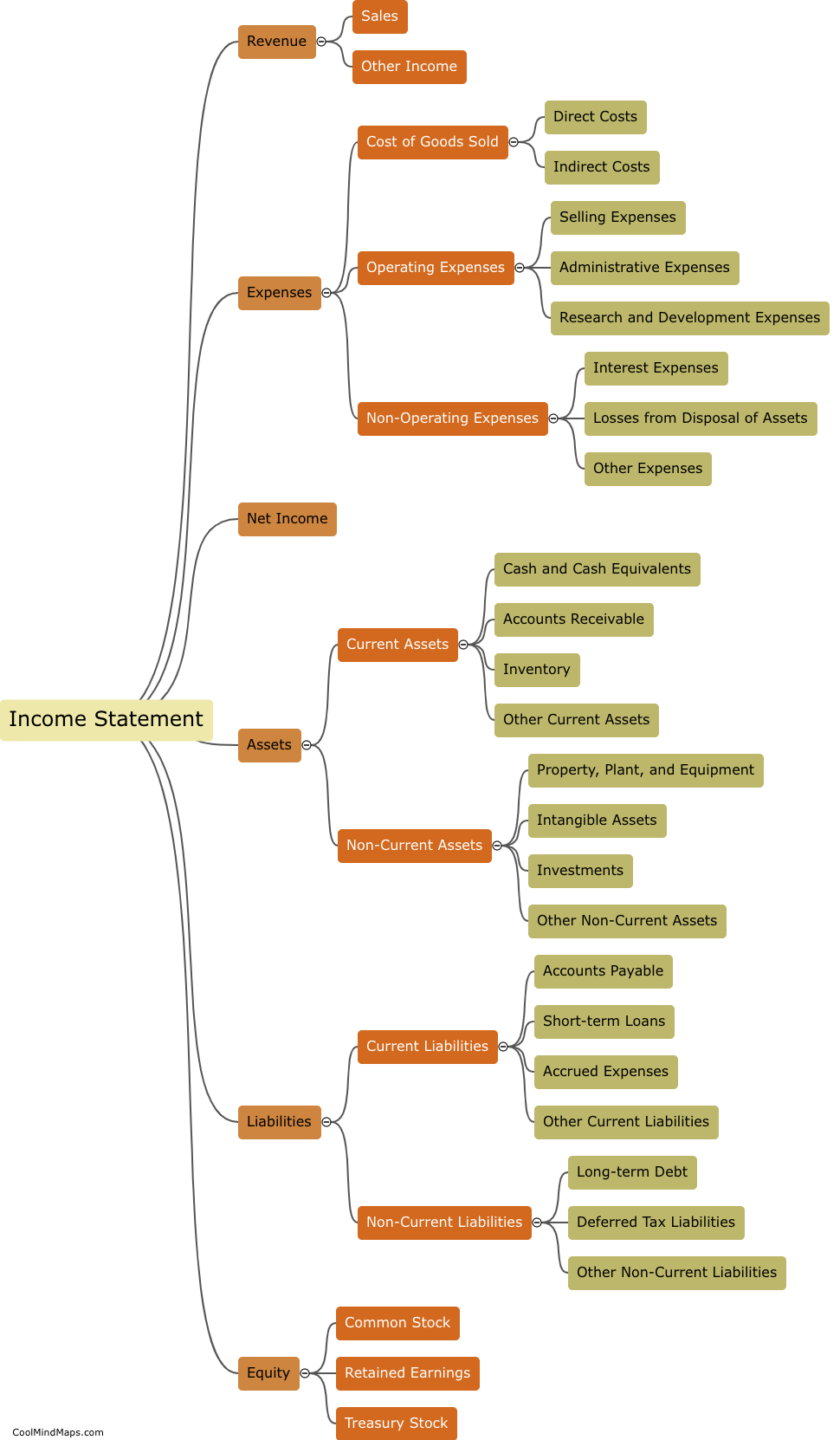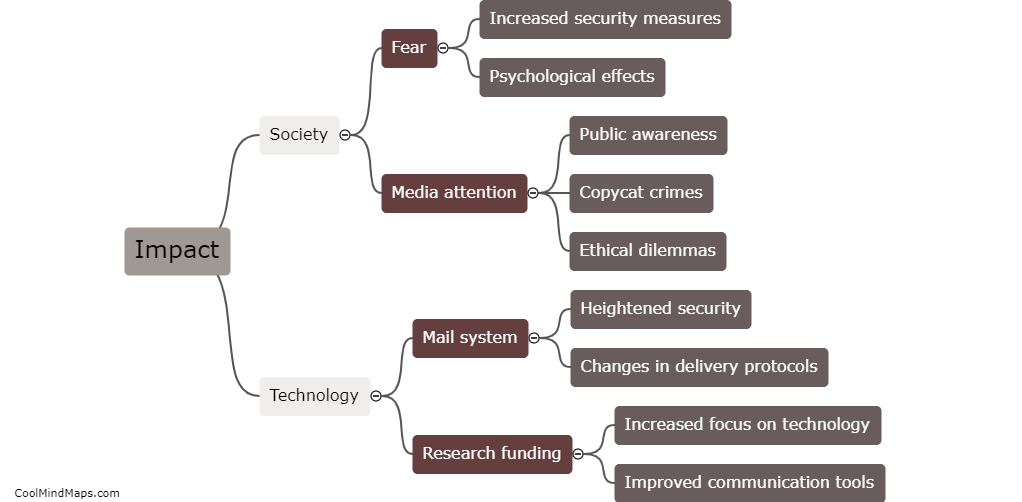What were the psychological effects of the Unabomber attacks?
The Unabomber attacks, perpetrated by Theodore Kaczynski between 1978 and 1995, had significant psychological effects on both the victims and society as a whole. The continuous bombings created a climate of fear and paranoia, instilling a sense of vulnerability and insecurity among the public. Individuals living in the targeted area and those associated with the victims experienced heightened anxiety and distress, often resulting in long-lasting psychological trauma. The attacks also had a profound impact on the victims' families, causing them to question the safety of their loved ones and their own sense of security. Moreover, society began to question its trust in institutions and technology, with some individuals becoming fearful and suspicious of everyday objects. Overall, reflecting on the psychological ramifications of the Unabomber attacks demonstrates how acts of terrorism can deeply affect individuals both psychologically and emotionally, leading to long-lasting repercussions.
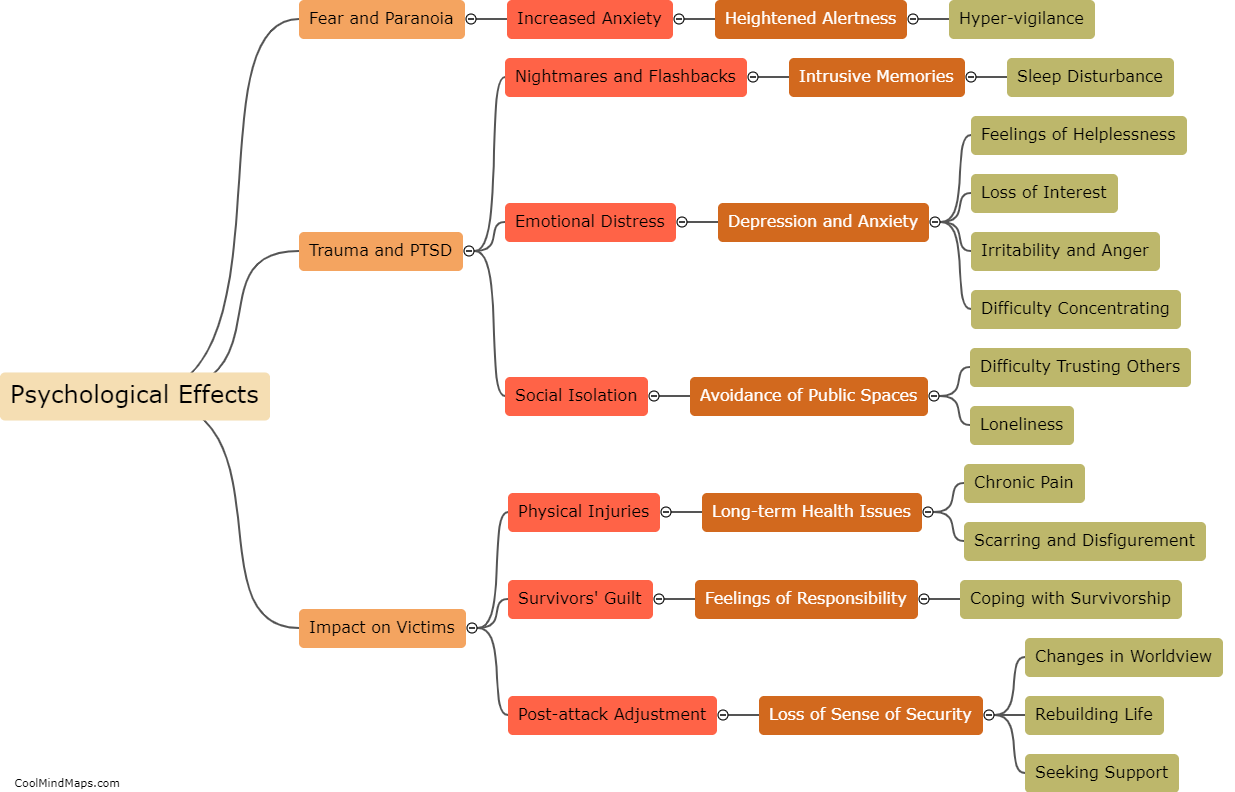
This mind map was published on 21 September 2023 and has been viewed 176 times.


